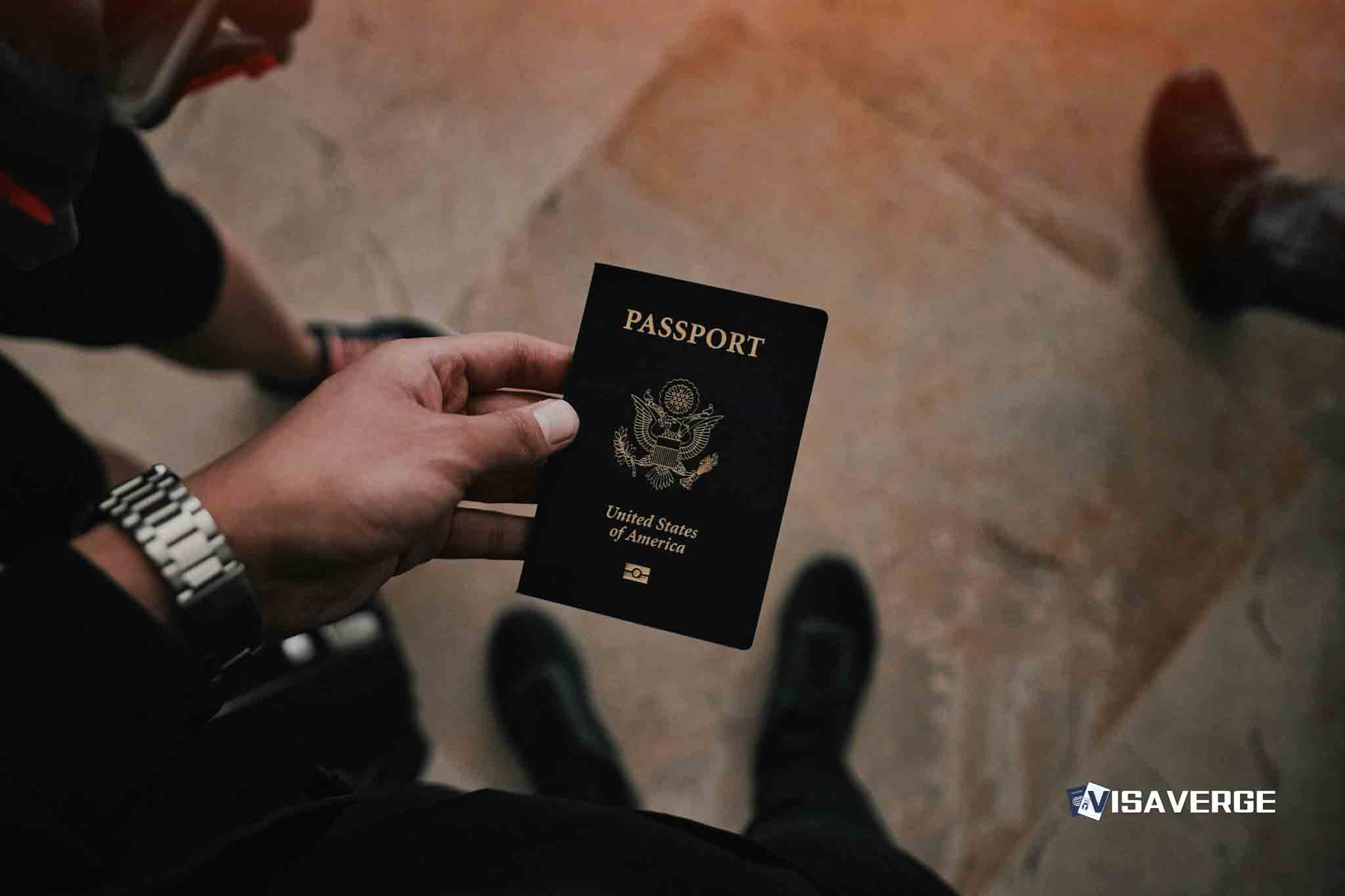Understanding the Lifetime Learning Credit for International Education
Are you studying abroad or considering pursuing an education outside the United States? If so, you might be wondering if you can take advantage of education tax credits like the Lifetime Learning Credit (LLC) to help offset some of the costs. It’s essential to understand the qualifications and limitations associated with claiming such credits on your tax returns to ensure compliance and maximize your tax savings.
What is the Lifetime Learning Credit?
Before diving into the specifics of using the LLC for international education expenses, let’s have a quick overview of what the Lifetime Learning Credit is. The Lifetime Learning Credit is a credit for qualified education expenses paid for eligible students enrolled in an eligible educational institution. This credit can help pay for undergraduate, graduate, and professional degree courses – including courses to acquire or improve job skills.
Eligibility Criteria for Claiming the LLC for Studies Abroad
To claim the Lifetime Learning Credit for education expenses incurred abroad, the following criteria must be met:
- The student must be enrolled at an eligible educational institution.
- The institution must be recognized by the U.S. Department of Education as eligible to participate in a student aid program administered by the Department.
How to Determine if Your Foreign Institution is Eligible
For your education expenses abroad to be eligible for the LLC, the foreign institution must qualify. To check your institution’s eligibility, you can use the Federal School Code Search tool available on the Free Application for Federal Student Aid (FAFSA) website. This tool includes foreign institutions that are eligible for Title IV federal student aid programs.
Qualified Education Expenses
It is crucial to understand what counts as a qualified education expense when claiming the LLC. Qualified expenses include tuition and fees required for enrollment or attendance at an eligible educational institution. Keep in mind that expenses related to room and board, insurance, medical expenses, and transportation are not considered qualified expenses for the purposes of the LLC.
Benefits of the Lifetime Learning Credit
The LLC is worth up to $2,000 per tax return and is calculated as 20% of the first $10,000 of qualified education expenses. What’s beneficial about the LLC is that there’s no limit on the number of years you can claim it, making it a valuable tax credit for students who may take longer than four years to complete their studies or for those taking job skill improvement courses.
Documentation and Claim Process
If you are eligible to claim the credit, ensure that you have the correct documentation to support your claim. Foreign institutions might not issue Form 1098-T, which is typically used by educational institutions in the U.S. to report qualified tuition and related expenses. In such cases, you should retain receipts and should be able to demonstrate enrollment with the foreign institution.
When it’s time to file your taxes, you will need to complete Form 8863, “Education Credits (American Opportunity and Lifetime Learning Credits),” and submit it with your tax return.
Conclusion
The LLC can be a valuable way to offset the costs of higher education, even when you’re studying internationally. Remember that eligibility for education tax credits abroad hinges on enrolled institutions meeting specific requirements recognized by the U.S. Department of Education. Be sure to keep thorough records and consult with the IRS guidelines or a tax professional if you have questions regarding your particular circumstances.
For more information on the Lifetime Learning Credit, the IRS provides extensive resources and guidance on their official website. Always refer to these official sources to ensure you’re getting the most current and accurate information regarding your taxes.
References:
- IRS Lifetime Learning Credit: IRS LLC Information
- Federal School Code Search tool: FAFSA Code Search
By understanding the eligibility requirements and maintaining the right documentation, you can take full advantage of the Lifetime Learning Credit and alleviate some of the financial burdens of pursuing your education abroad.
Still Got Questions? Read Below to Know More:
Does the Lifetime Learning Credit apply if I’m taking a part-time course at an international institution while working abroad
The Lifetime Learning Credit is a tax credit available to U.S. taxpayers to help pay for undergraduate, graduate, and professional degree courses, including courses to acquire or improve job skills. However, it comes with specific eligibility criteria, particularly regarding the educational institution. To qualify for the Lifetime Learning Credit:
- The educational institution must be eligible. It should be any college, university, vocational school, or other post-secondary educational institution eligible to participate in a student aid program administered by the U.S. Department of Education. This includes some international institutions.
- The student must be taking the course for credit or to acquire or improve job skills.
- The student can be enrolled for one or more courses.
If you are taking a part-time course at an international institution while working abroad, the Lifetime Learning Credit can still apply if the institution meets the above criteria. The IRS states:
“Generally, any accredited public, nonprofit, or proprietary post-secondary institution eligible to participate in the student aid programs administered by the Department of Education should qualify.”
You can verify if an international school is eligible by checking if it appears in the Federal School Code List, which includes some international institutions.
Please refer to the IRS Publication 970, “Tax Benefits for Education”, for comprehensive information. You’ll find details on the credit, how to claim it, and which institutions qualify. Here’s the link to the Federal School Code List: Federal Student Aid’s Federal School Code List.
Remember to maintain records such as Form 1098-T from the institution, as well as receipts for related expenses, as they will be required for reporting the credit on your tax return. If an international institution does not provide Form 1098-T, you should keep detailed records of qualified education expenses paid to the institution. Always check the latest IRS guidelines or consult a tax professional for the most current rules and regulations.
Can I get the LLC for online courses offered by a foreign university if I’m studying from home in the US
If you’re referring to the taxation and legal structure implications of operating an online course offered by a foreign university while being based in the United States, here’s what you need to know:
LLC Formation:
– An LLC, or Limited Liability Company, is a US business structure that offers personal liability protection and flexible tax options.
– Even if you are studying with a foreign university and earning income through courses you offer following their curriculum, you can form an LLC in the United States if you meet the legal requirements to do so. This includes being a lawful resident or having the appropriate visa if you’re a non-citizen.
– For comprehensive information on forming an LLC, you can visit the U.S. Small Business Administration website: How to Start an LLC.
Tax Considerations:
– Income earned through an LLC based in the U.S. will generally be subject to U.S. tax, regardless of the origin of the educational content.
– As an LLC owner, you can choose how your entity is taxed (like a sole proprietorship, partnership, or corporation). The IRS provides guidelines on the tax treatment for LLCs: LLC Taxation.
– If the foreign university is your employer, you might be considered an independent contractor from a tax standpoint. It’s essential to report all income on your tax return, and for more on this, you can reference the IRS page on Self-Employed Individuals Tax Center: Self-Employed Individuals Tax Center.
Immigration Considerations:
– Your ability to legally work in the U.S. (including operating an LLC) hinges on your immigration status. For non-citizens, this typically means having a work permit or a visa that allows for such activities.
– Check with the U.S. Citizenship and Immigration Services (USCIS) or consult with an immigration attorney to understand the specific permissions associated with your status: Working in the U.S..
Always verify your immigration status and consult with a tax professional or attorney to understand the implications for your specific situation. It’s important to ensure that any business venture you undertake complies with both U.S. immigration laws and tax regulations.
If my foreign university doesn’t provide a 1098-T form, what specific documents will the IRS accept for me to claim the LLC
If you’re studying at a foreign university and looking to claim the Lifetime Learning Credit (LLC) on your U.S. taxes, but cannot obtain a Form 1098-T (as this form is typically issued by U.S. educational institutions), you’ll need to provide alternative documentation to the IRS. To substantiate your claim for the LLC, you should gather the following documents:
- Proof of Enrollment: Documentation that indicates you, your spouse, or your dependent was enrolled at an eligible educational institution. This could be an enrollment confirmation, a transcript, or an official letter from the university.
- Proof of Paid Qualifying Expenses: Receipts, bank statements, or financial records showing payment of tuition and fees required for enrollment or attendance at the eligible institution. Ensure these documents detail the amount paid and the date of payment.
- Course Information: If applicable, records that show that the courses were part of a degree program or were taken to acquire or improve job skills.
According to the IRS, to be eligible for the LLC, the educational institution you’re attending must be eligible to participate in the student aid program administered by the U.S. Department of Education. Although foreign universities do not participate in this program, educational institutions located in Canada and Mexico, or that have a recognized accreditation applicable, may be considered eligible.
“Generally, you can claim the lifetime learning credit for qualified tuition and related expenses of higher education paid for yourself, your spouse, or a dependent for whom you claim an exemption on your tax return.”
For more details, you should refer to IRS Publication 970, “Tax Benefits for Education”, which offers comprehensive guidelines on claiming education credits. Additionally, consult the official IRS website or seek advice from a tax professional to ensure you’re compiling the correct documentation and properly claiming the credit.
- IRS Publication 970, Tax Benefits for Education: IRS Publication 970
- IRS Website: IRS.gov
If I attended two different eligible educational institutions in one year, one domestic and one abroad, can I combine expenses from both to claim the LLC
Yes, you can combine expenses from two different eligible educational institutions, one domestic and one abroad, to claim the Lifetime Learning Credit (LLC) on your tax return if both institutions participate in the U.S. Department of Education’s student aid programs. The LLC is designed to provide a tax credit based on qualified education expenses paid to an eligible institution.
To claim the LLC, there are a few important points to consider:
- Qualified Expenses: These include tuition and fees required for enrollment or attendance at the eligible institution. The expenses must be related to courses that are part of a postsecondary degree program or used to acquire or improve job skills.
- Eligibility: Both educational institutions must be eligible. For a foreign school, it generally must be a recognized institution where you can use U.S. federal student aid. Look up eligible foreign institutions on the Federal Student Aid’s website. Remember, you cannot claim expenses that were reimbursed or paid for with a scholarship or grant.
-
Credit Limit: For the LLC, you can claim 20% of the first $10,000 of qualified education expenses, or a maximum of $2,000 per tax return. This credit is non-refundable, which means it can reduce the amount of tax you owe to zero, but you won’t get a refund on anything extra.
For the most accurate advice and to understand the specifics of combining expenses, please refer to the IRS Publication 970, “Tax Benefits for Education,” which details the requirements and limitations of the LLC. It is also a good idea to speak with a tax professional who can provide personalized advice based on your situation.
To learn more about the LLC, including how to claim the credit, you can visit the official IRS website: IRS – Lifetime Learning Credit.
“The Lifetime Learning Credit may help you pay for undergraduate, graduate and professional degree courses—including courses to acquire or improve job skills.” – IRS
Remember to keep receipts and form 1098-T from each institution to substantiate your claim when filing your taxes.
Can I still claim the LLC if I’m receiving a scholarship that covers part of my tuition fees at a foreign school
The Lifetime Learning Credit (LLC) is an education credit available to taxpayers in the United States to help pay for undergraduate, graduate, and professional degree courses—including courses to acquire or improve job skills. To answer your question directly: yes, you can still claim the Lifetime Learning Credit if you receive a scholarship, but there are some important considerations.
Here are the key points you need to know:
- Scholarship Adjustment: The amount of tuition fees you can claim for the LLC must be reduced by any tax-free educational assistance you receive, such as scholarships, grants, or employer-provided educational assistance. You can only claim the credit on the portion of your tuition that you paid for with your own funds and is not covered by your scholarship.
“You must reduce the amount of expenses eligible for the Lifetime Learning Credit by all tax-free scholarships, grants, and educational assistance benefits you (or your dependent) receive.” IRS Publication 970
- Qualifying Expenses: If your scholarship does not cover all your educational expenses, you may use the remaining expenses—including tuition, fees, and any books or supplies required for your courses—to calculate the credit.
“Qualified expenses are amounts paid for tuition, fees, and other related expenses for an eligible student.”
- Foreign Institution Eligibility: To be eligible for the LLC, the foreign university must qualify as an eligible educational institution. Generally, this means the university must be eligible to participate in a student aid program administered by the U.S. Department of Education.
“An eligible educational institution is any college, university, vocational school, or other post-secondary educational institution eligible to participate in a student aid program administered by the U.S. Department of Education.” IRS Eligible Educational Institutions
Keep in mind that the LLC is nonrefundable, meaning it can reduce your tax bill to zero, but you won’t get a refund on anything leftover from the credit. If you’re eligible, you can claim up to $2,000 per tax return. It is advisable to consult with the IRS resources or a tax professional to get personalized advice for your specific situation.
Learn today
Glossary or Definitions:
- Lifetime Learning Credit (LLC): A tax credit available to eligible students enrolled in an eligible educational institution. It helps offset qualified education expenses for undergraduate, graduate, and professional degree courses, including courses to acquire or improve job skills.
- Eligible Educational Institution: A college, university, vocational school, or other postsecondary educational institution that is recognized by the U.S. Department of Education as eligible to participate in federal student aid programs.
-
U.S. Department of Education: A federal agency responsible for implementing federal policies and programs related to education, including accreditation and student financial assistance.
-
Federal School Code: A unique code assigned to each eligible educational institution by the U.S. Department of Education. The code is used to identify institutions and determine their eligibility for federal student aid programs.
-
Free Application for Federal Student Aid (FAFSA): A form that students must complete to apply for federal student financial aid, including grants, loans, and work-study programs. The FAFSA website provides a Federal School Code Search tool to check the eligibility of foreign institutions.
-
Qualified Education Expenses: Expenses paid for tuition and fees required for enrollment or attendance at an eligible educational institution. These expenses are eligible for tax credits such as the Lifetime Learning Credit.
-
Room and Board: Expenses related to housing and meals incurred while attending an educational institution. Room and board expenses are not considered qualified education expenses for the purposes of tax credits like the Lifetime Learning Credit.
-
Form 1098-T: A tax form issued by eligible educational institutions in the U.S. to report qualified tuition and related expenses paid by students. However, foreign institutions might not issue this form, so alternative documentation must be provided for claiming tax credits.
-
Form 8863: A tax form used to claim education credits, including the Lifetime Learning Credit. Taxpayers must complete and submit this form along with their tax return.
-
IRS (Internal Revenue Service): The federal agency responsible for administering and enforcing tax laws and collecting taxes in the United States. The IRS provides guidance, forms, and resources regarding tax credits, including the Lifetime Learning Credit.
-
Tax Professional: A licensed professional, such as an accountant or tax attorney, who provides expert advice and assistance with tax-related matters, including tax planning, preparation, and compliance. Consulting a tax professional can be helpful when dealing with complex tax situations or international education expenses.
So there you have it! By understanding the ins and outs of the Lifetime Learning Credit for international education, you can make the most of this tax benefit while studying abroad. Don’t forget to keep thorough records and consult official IRS guidelines if you have any questions. And if you want to dive deeper into the world of immigration and visas, be sure to check out visaverge.com for more helpful information. Happy studying!















